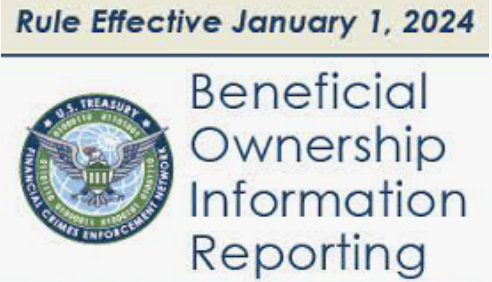It’s never an easy decision to close a company and abandon the dream you were building. Having to meet the final obligations to close cleanly and remove all potential liability is not a fun situation to be in. At Cleer Tax, we make the tax filing for final returns for dissolving a corporation as simple and inexpensive as possible.
Tax Considerations When Dissolving a Corporation:
Step 1: File All Delinquent Tax Returns
The first thing to do when thinking about dissolving a corporation is to file all tax returns and pay all tax balances, including any penalties, fees, and interest. This includes state returns and taxes owed – like Delaware Franchise Tax and CA Minimum Tax. Cleer can help you file these taxes, and we have a Clean-Up Bookkeeping Service available if you need to get months or even years of books in order before you file.
It is important to note that Delaware will never close a corporation for non-payment of taxes. While they currently don’t actively pursue companies for back franchise taxes, there is always a risk that they may come after the shareholders and decision-makers in the future. Thus, it is recommended to pay all taxes and close the company by dissolving with Delaware state when ceasing business.
Step 2: Dissolve with the State
The next step in dissolving a corporation is to legally dissolve in the state of formation. There are two steps to doing this correctly. The first is to draft a board resolution that shows the vote to dissolve the company. Then, after the decision has been ratified, the articles of dissolution are filed with the state to formally terminate the corporation.
Generally, the documents for dissolving a corporation with the state requires the help of an attorney to prepare. Thus, you will want to have the articles of dissolution and board authorizations prepared by an attorney for filing with the Secretary of State. You can use a lawyer for corporate dissolutions who provides a high level of service for Cleer clients at a fair price.
Step 3: Stop Doing Business
This may seem obvious, but once you close your business or dissolve a c-corporation, that should be the end of receiving income from it. You shouldn’t be transacting business after the date of closing. Expenses paid after the business closes and prior to filing the final tax return can still be deducted on that final return and offset any income.
However, any income received after the company closes will create an unincorporated business requiring an additional tax filing. This will result in needing an independent contractor’s tax return. If there is only one owner, this means filing Schedule C must be included with the personal tax return. If the company has more than one owner, a partnership return filed on Form 1065 is required.
Step 4: File Form 966 with the IRS
It is required to file Form 966 within 30 days of closing the corporation. This form can be prepared by the attorneys filing the dissolution documents. However, as this is a requirement of closing, it is important to file with the IRS. Cleer has a Final Return Package, which includes a Final Federal tax return, one state return, Form 966 (required within 30 days of dissolution), and your EIN cancellation letter upon Federal return submission.
Step 5: File an Extension
One of the hardest aspects of final income tax returns is simply filing at the right time. The corporate income tax return is generally due three and a half months after the month the company dissolution is filed by the state. The problem is that states don’t always file the dissolution documents right away when submitted. We have seen them file the final date, weeks, even months, after filing.
Until recently, we recommended waiting to receive the stamped dissolution documents prior to filing taxes. However, a new challenge has come up: it is now taking 18+ weeks for some states to return dissolution documents. Thus, we now recommend filing an extension after dissolution, based on when the dissolution was submitted.
It is important to ensure that the return isn’t late when it is filed, as certain penalties can be very steep for filing late, including the $25,000 penalty if form 5472 needs to be included. Cleer will file an extension for you if needed as part of the Final Return Package, as sometimes it can take weeks to get the Certificate of Dissolution from your state.
Step 6: File Your Taxes
After receiving the stamped dissolution documents, file the final/current year federal and state income tax returns. Returns should always be marked “Final Return” when they are filed and should use fiscal year dates ending at the date of dissolution, but this is just the start of what needs to be looked at for filing a final tax return properly. Certain transactions can create the requirement to include Form 5472 for foreign shareholders, and debt can create taxable income in the year of dissolution or trigger information returns. Even though these returns are often far more complex than a standard tax year, at Cleer Tax, we offer a discounted Final Tax Filing Package to help you through this challenging time.
If there were payouts made from earnings and profits, the information returns reporting the dividends on 1099-DIV or 1042-S will also be required, and repayments of loans could trigger the need for 1099-INT to be filed. SAFE notes remaining unpaid at dissolution generally don’t create cancellation of debt income, but it depends on the terms of the agreement and if any partial payment was made prior to closing. Thus, this all needs to be reviewed carefully when dissolving a corporation.
Step 7: Tax ID Forfeiture
Another requirement of dissolving a corporation is to write a letter to the IRS requesting that the Employer Identification Number (EIN) assigned to your company be removed from their system. This way, it prevents the IRS from sending requests for tax returns for later filing years. If you need help with this letter when closing a company, Cleer Tax can provide it as part of our Final Tax Filing Package; mailing it to the IRS is included in this service.
If you have registered to do business in any state other than the state of incorporation, you will need to withdraw or surrender your foreign qualification in that state. Each state has a process for doing this, and you may want to have the dissolution attorney file this for you. Oftentimes, you cannot surrender registration in the state until the final tax return for that state has been filed. Most states allow for up to a year after closing the business to withdraw the state registration.
Dissolving a Corporation is Simple with Clear Tax
Now that you know the steps, you know what you need to get in order to begin the process of dissolving a corporation. As you may now realize, this process takes lots of work and can be very complex, which is why so many people choose Cleer Tax to simplify the tasks involved with dissolving a corporation. Get in touch with us today to learn more about how our team can assist you.






